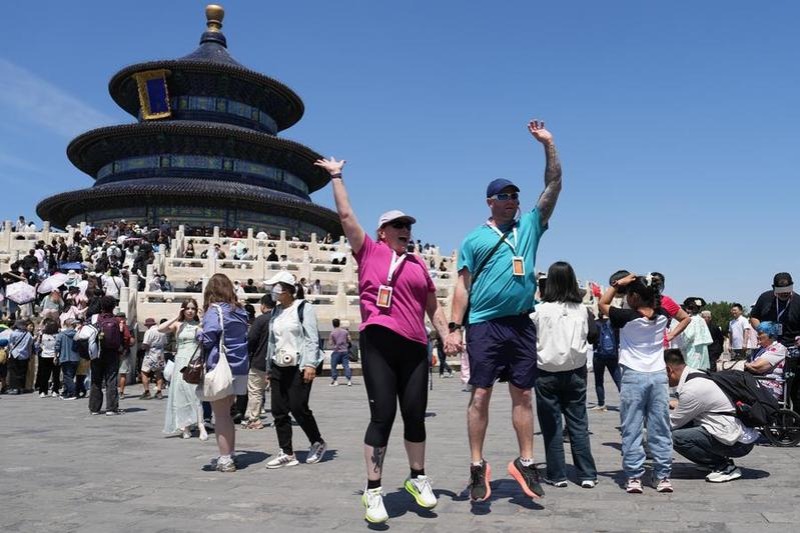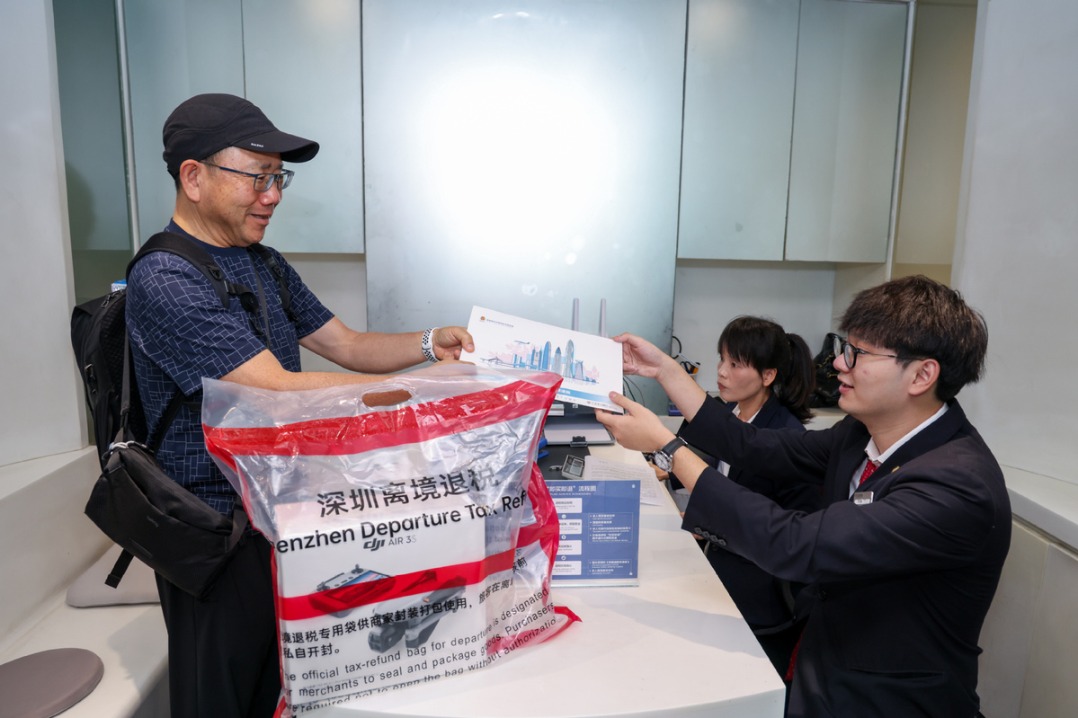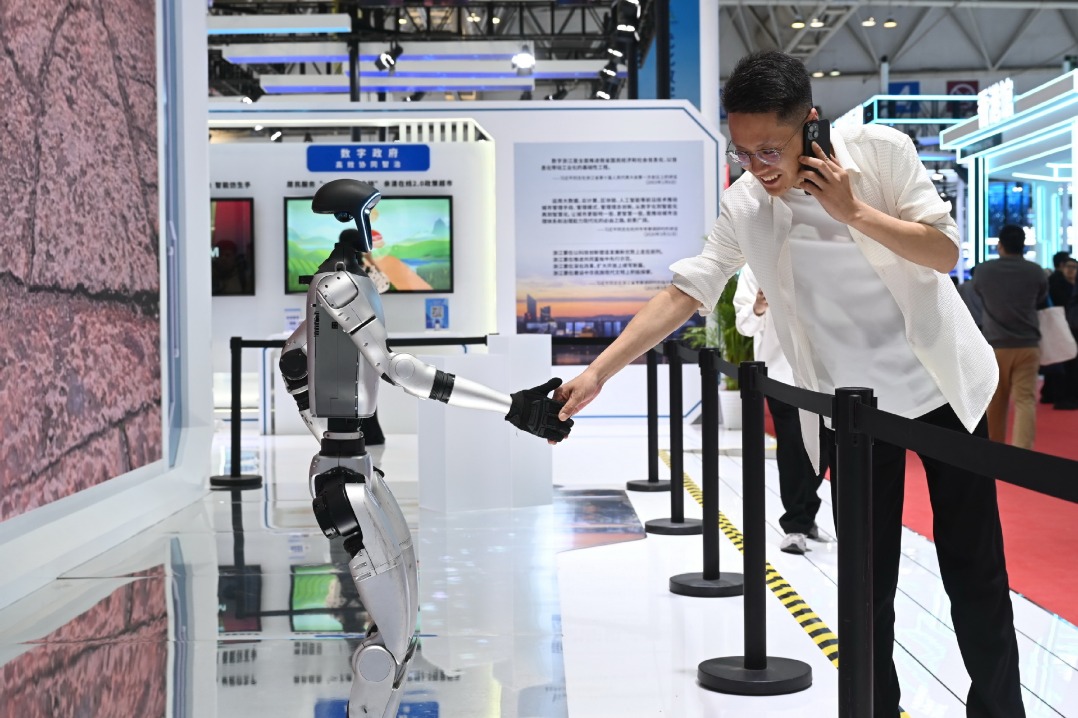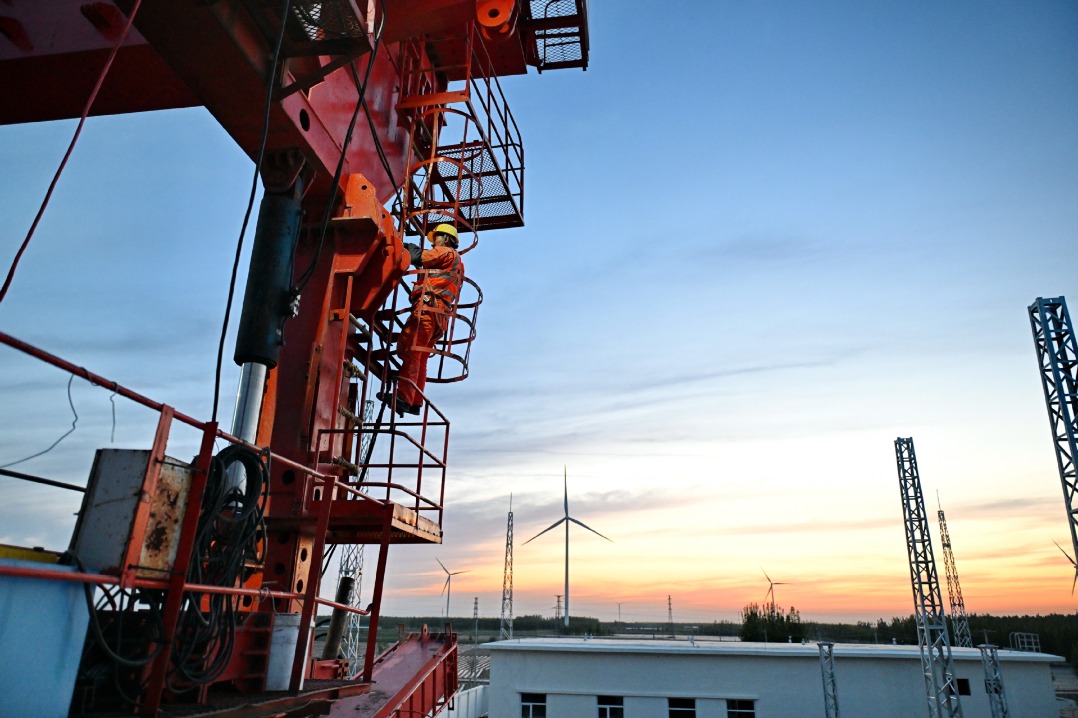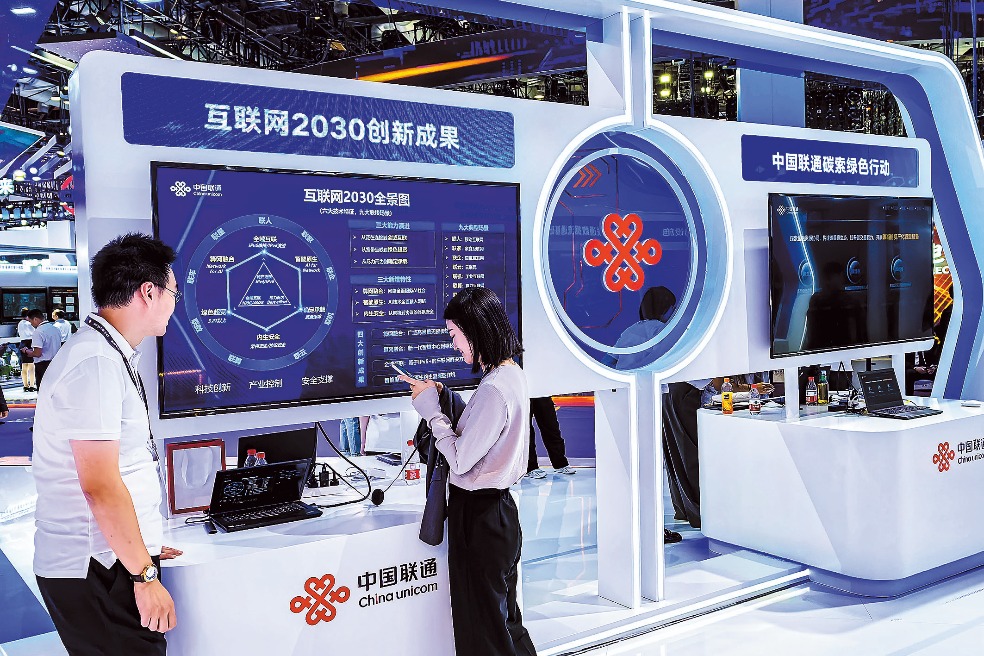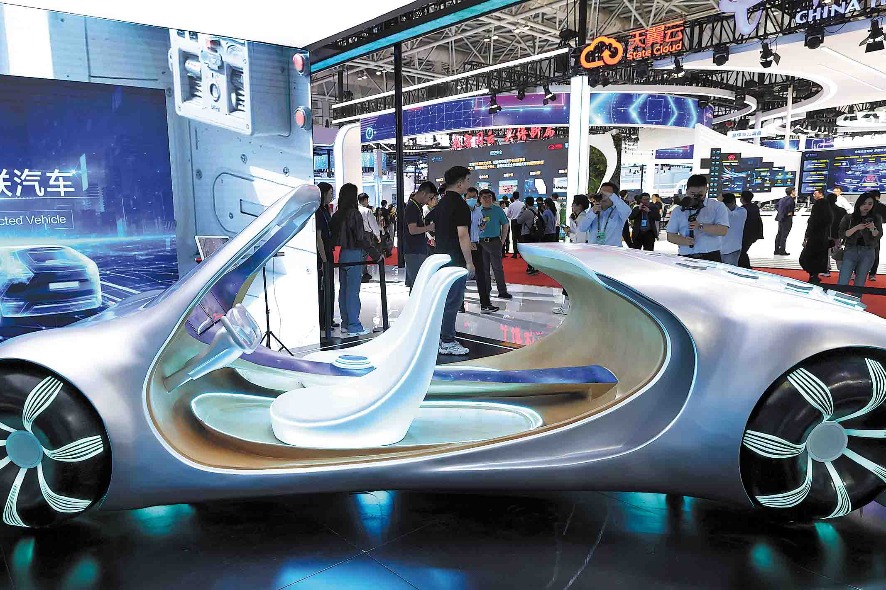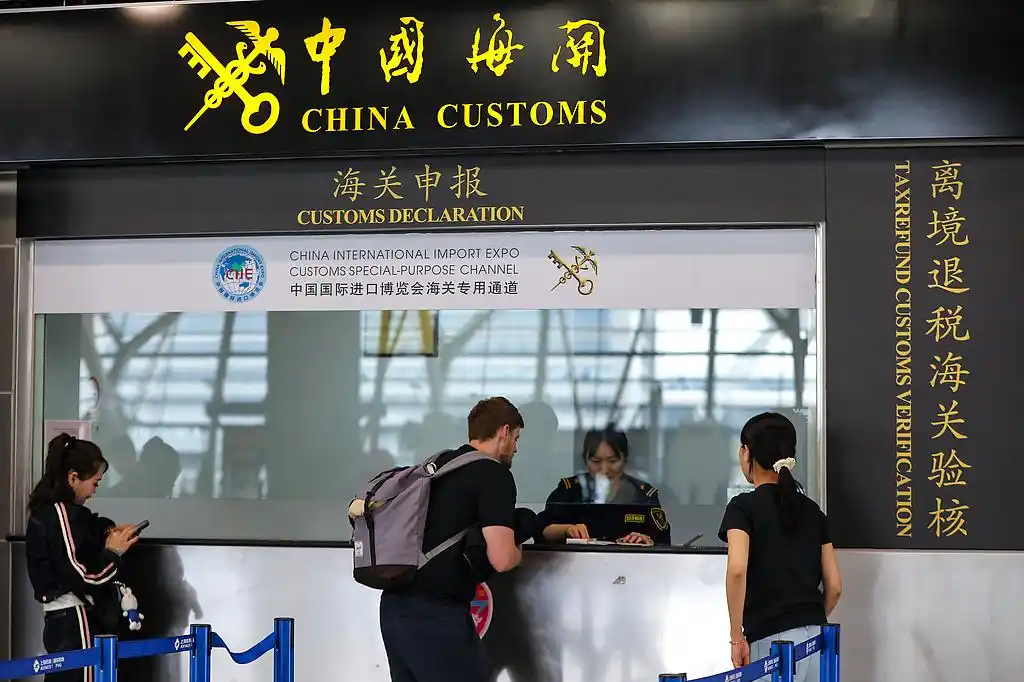In the era of AI, smart tech dismantles language barriers

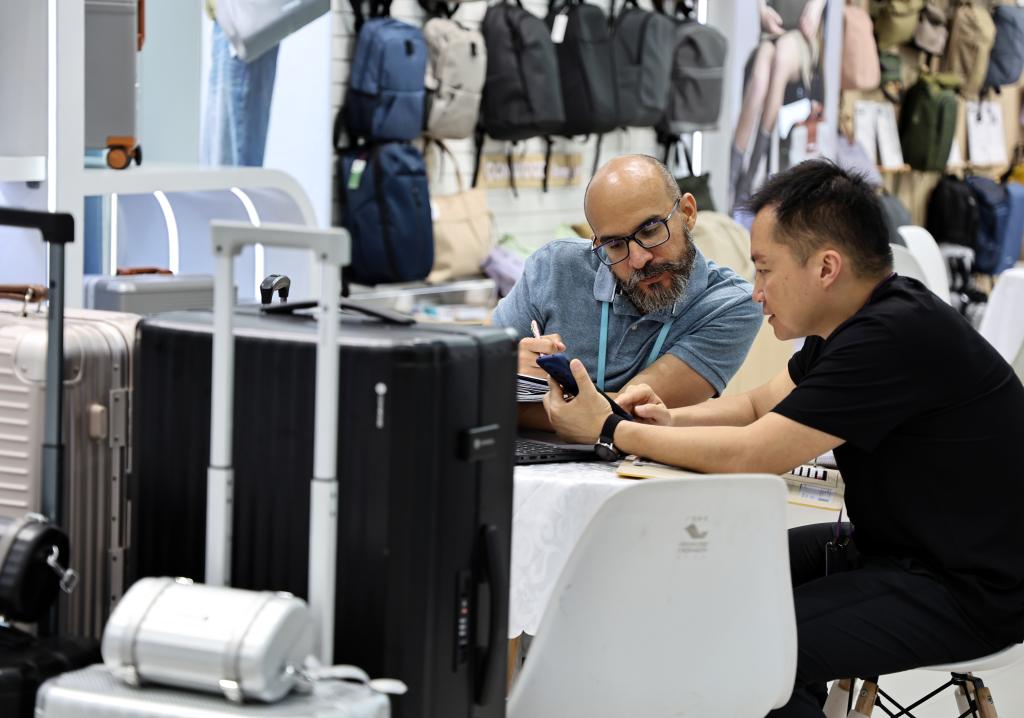
Some 22 years ago, I worked part-time as an interpreter, accompanying an Indian businessman visiting the Canton Fair, then a must-attend event for global buyers that only highlighted exports of Chinese companies.
Additionally, I needed to accompany the businessman to visit factories in Dongguan and Foshan, two manufacturing and trade cities in Guangdong province, frequently switching languages between Chinese and English to help him better communicate with his Chinese business partners.
In a time when there were no intelligent translation devices, many college students like myself who majored in foreign languages often worked as translators during the fair, helping facilitate communication between overseas buyers and Chinese exporters.
Things have changed a lot — smart translators have become a boon for overseas buyers and Chinese exporters during the 137th session of the fair, as demands for cross-language communications services have increased.
"After using the artificial intelligence translation device, I have more Chinese friends than Turkish friends," said Cemil Cihan, a Turkish horticultural equipment merchant visiting the fair's first phase themed with advanced manufacturing in mid-April.
Visiting an exhibition booth of Chinese artificial intelligence company iFlytek, the Turkish businessman bought a dual-screen translation machine as a gift to his friend.
"The AI translation assistant has become one of the important tools for me to talk to Chinese business representatives, helping greatly to enhance business efficiency," he said.
iFlytek's dual-screen translation machine can translate 85 languages online, covering over 200 countries and regions, earning it the position as the designated translation device for the fair, seen as a barometer of China's foreign trade.
The translator also supports offline translation in 17 languages, serving over 800,000 users, with translation instances exceeding one billion, according to the company.
During the fair, I also met Zhang Mingyue, a Chinese businesswoman engaged in selling made-in-China goods to overseas markets for more than 20 years.
"In the past, speaking English was enough to solve communication problems in business, but now the environment has changed significantly," said Zhang.
In Zhang's eyes, the foreign trade environment, along with language communications, has changed dramatically as more Chinese goods have been shipped to emerging markets.
"To expand the market to countries and regions in the Middle East, South America and Africa, I hope to communicate directly with customers in their mother tongue from these countries, so as to build trust more effectively," she said.
Over 20 years ago, Zhang, a native of Guangzhou, Guangdong's provincial capital, moved to North America with her family, promoting electrical appliances and lighting fixtures from Guangdong to overseas markets.
With the changing foreign trade environment, Zhang's goals have become more ambitious — to promote competitive products from Guangdong to more emerging overseas markets.
She did. After years of trading in the North American market, Zhang successfully expanded her business to the Middle East and South America, among other places.
Knowing that only English is no longer enough, Zhang needs to be able to communicate directly with customers speaking in languages such as Arabic, Spanish and Portuguese.
"By using translation devices that can speak the local languages, business discussions become smoother and trust is easier to establish," she said.
At iFlytek's exhibition booth, Zhang also bought a dual-screen translation machine, at a cost of about 4,000 yuan ($550).
"Compared to mobile translation apps, this AI translation device remains reliable in noisy environments and can complete translations in less than one second with rapid responses," said Zhang.
After scanning a QR code to enter a WeChat mini-program and paying a deposit, exhibitors and buyers were also able to rent smart translation devices during the fair.
The popularity of the AI translator was not accomplished overnight — iFlytek's AI translation devices are based on completely domestically produced technologies with over 1,000 translation patents.
In addition to offering the AI translation service during the fair, iFlytek displayed a series of products and technologies based on its large-scale deep reasoning model trained on a national computing power platform.
"Booming technologies like AI and big data will greatly help build an efficient bridge between Chinese advanced manufacturing products and overseas markets," said Zhang.


















